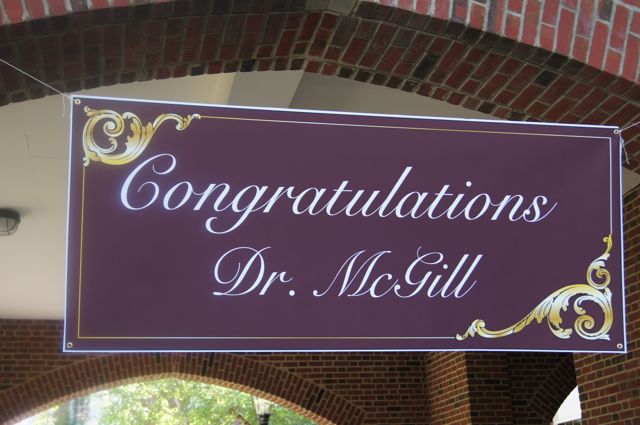Congregation Kol Ami of White Plains Welcomes New Cantor
- Details
- Written by: Joanne Wallenstein
- Hits: 9299
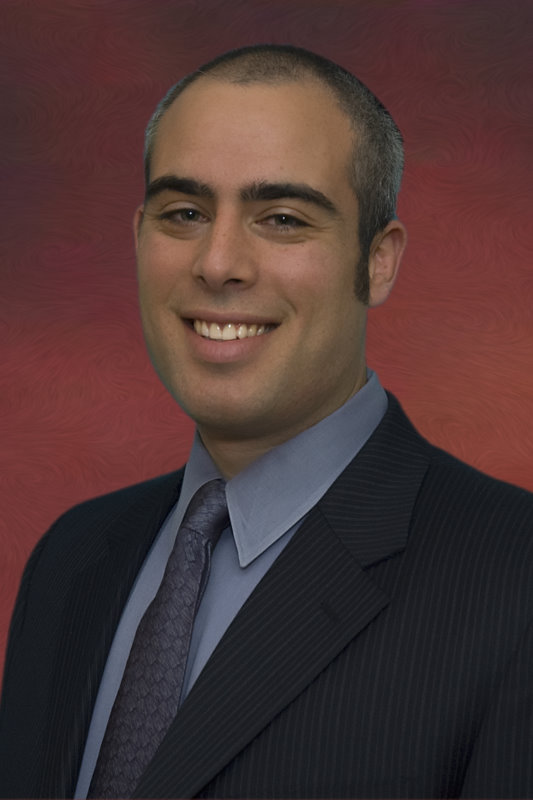 Congregation Kol Ami of White Plains is pleased to announce the appointment of Cantor David Rosen as its new Cantor. Cantor Rosen is an outstanding musical and pastoral leader, educator and Jewish scholar. He will be a full partner in the clergy team performing life cycle events and providing pastoral care to congregants as well as developing and implementing the music programs for all aspects of congregational life.
Congregation Kol Ami of White Plains is pleased to announce the appointment of Cantor David Rosen as its new Cantor. Cantor Rosen is an outstanding musical and pastoral leader, educator and Jewish scholar. He will be a full partner in the clergy team performing life cycle events and providing pastoral care to congregants as well as developing and implementing the music programs for all aspects of congregational life.
"We are thrilled to welcome Cantor Rosen to our thriving synagogue life." Said Kol Ami President Hank Rouda, "Cantor Rosen is representative of our philosophy of connecting Jewish music, spirituality and the congregation in a warm and inclusive manner."
After graduating from York University with a Bachelor of Arts in Psychology and an Advanced Certificate in Hebrew and Judaic Studies, Cantor Rosen attended the Debbie Friedman School of Sacred Music at the Hebrew Union College-Jewish Institute of Religion, where he received a Masters of Sacred Music and was ordained as a cantor in 2003. Prior to Kol Ami, he served as the Cantor and Director of Youth Education for the Beth Radom Congregation in his hometown of Toronto, Canada. Cantor Rosen recently served as the President of the Toronto Council of Hazzanim and is a member of the Cantor's Assembly as well as an Executive Board member of the American Conference of Cantors where he has served on the Ethics Committee and Cantorial Certification adjudication committee. He has offered lectures and presentations on Jewish music, has been a guest conductor for various synagogue choirs, and has been a liturgical consultant for Jewish Day Schools in Toronto.
In 2008, Cantor Rosen travelled to Germany where he participated as a featured soloist in a series of concerts commemorating the 70th anniversary of Kristallnacht. As a living Kidney Donor, he has served as a motivational speaker for the Kidney Foundation of Canada and Trillium Gift of Life Foundation. Cantor Rosen is a member of the Toronto Interfaith Clergy Curling Association and through that organization has spearheaded and participated in many interfaith concerts. In 2013, Cantor Rosen co-founded the Toronto Jewish Choral Festival, a concert featuring the voices of 13 choirs and over 250 singers.
"Cantor Rosen has a magnificent voice that will fill our new sanctuary with song and bring a spiritual lift to all who attend our services." said Rabbi Shira Milgrom.
In the last several years, Congregation Kol Ami has focused its efforts on "Relational Judaism", or deepening the connections and relationships to lead to a truer sense of belonging to a connected and caring community. Cantor Rosen will carry on with that philosophy through the music that the congregation hears, learns and sings whether at services, in the choir or at a life cycle event.
"Kol Ami welcomes Cantor Rosen, his wife, Rabbi Illyse Glickman and their son Joel, into the Kol Ami family.", said Rabbi Tom Weiner, "We couldn't be more excited to have him lead us in the joy and beauty of Jewish sacred music."
Congregation Kol Ami is located at 252 Soundview Avenue, White Plains, NY. For more information about Congregation Kol Ami membership or High Holidays, contact Jane Friedberg, Executive Director at 914.949.4717 or jsfkolami@aol.com.
On the Job in Scarsdale: Superintendent Thomas Hagerman
- Details
- Written by: Joanne Wallenstein
- Hits: 6925
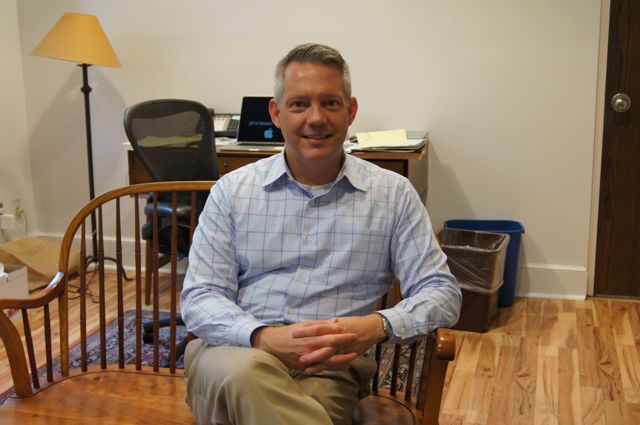 Scarsdale's newly installed Superintendent Dr. Thomas Hagerman started work three weeks ago and according to Board President Mary Beth Gose, he has not stopped since. He did however take a few minutes out of his day to speak to Scarsdale10583 about his transition to Scarsdale, first impressions, and plans for the upcoming year.
Scarsdale's newly installed Superintendent Dr. Thomas Hagerman started work three weeks ago and according to Board President Mary Beth Gose, he has not stopped since. He did however take a few minutes out of his day to speak to Scarsdale10583 about his transition to Scarsdale, first impressions, and plans for the upcoming year.
Hagerman, who comes to Scarsdale from Winnetka, Illinois didn't have the easiest time finding a place to live in Westchester. He quickly discovered it was a highly competitive real estate market, and after two failed attempts to buy a home decided to rent instead. He is however discovering some of the County's best features such as the walking trails at the Rockefeller Preserve and good restaurants nearby.
In order to get up to speed on the issues and his constituencies, Hagerman is holding one on one meetings with teachers, administrators, union leaders, past and present board members, leaders of community groups and parents to hear their views and their concerns. Armed with answers to a series of questions he is posing, he will formulate his ideas about what the district needs to do to move forward.
However, he says there are some issues that require immediate attention and rather than wait to address these in a formalized plan, he will "build the plane while flying it at the same time," and take on issues that should be addressed now.
When asked about his overall educational philosophy, Hagerman said that he comes from a "strongly progressive background." Quoting Carlton Washburne a famed educator from Winnetka, he said he believes in educating "the whole child" and in teaching students how to take care of themselves on all levels, emotional, physical and intellectual. Recognizing that Scarsdale can be a very pressured place where good grades triumph over educational passion, Hagerman hinted that work on meeting children's emotional needs would be a part of his plan.
Hagerman was drawn to Scarsdale by the district's focus on 21st century education and innovation. He is excited by plans for the maker's space, design lab and learning commons and looks forward to working with the faculty and technology team on developing the curriculum for these new facilities. He is also impressed with a new course in the high school called City 2.0 in which students undertake "project based learning" and integrate public policy, urban planning and economics to solve a real world problem in New York involving, for example, water or open space. Once the projects are completed, students present their findings to a group of professional experts in the field.
Though he is impressed with innovation in Scarsdale he recognizes that the district's infrastructure needs an upgrade. He said that in comparison to his district in Winnetka, many of our facilities look "rough" and ready for renovation. He said the high school looks like "Hogwarts" and that we need to create an environment where kids can learn. He also cited the need for an upgrade to our technological capabilities to facilitate better communication between schools and parents and to enhance educational opportunities using new technologies. He would like to improve the district's website to include more information about the schools, increase transparency and use it to display all that the district has to offer to outsiders.
He recognized that one of the challenges in Scarsdale is maintaining seven rather small schools and staffing each one with support staff. He understands that Scarsdale values its neighborhood schools and personal relationships between parents, teachers and students but said that a network of small schools is costly in comparison to a middle school of 2,500 students that he headed up in Beaverton, Oregon.
Hagerman arrived in Scarsdale just as a new contract with the teachers was finalized. One of the provisions of the contract was the formation of a joint committee of representatives from the teacher's assocation and the Board of Education to make a recommendation on whether or not to continue to welcome the children of Scarsdale faculty who live outside the district to attend Scarsdale schools. There are estimated to be fewer than 100 out-of-district children of faculty members in attendance and the new contract calls for a study of this practice to determine whether or not this continues to be feasible. This an issue that has apparently caused some rancor among the teachers. The committee has already met two times and will continue discussions in the fall.
Though Hagerman realizes that the endpoint of a Scarsdale education is admission to college, he said "there is a college for every student," and hoped that the focus here could be on igniting a passion for learning rather than admission to a brand name school. His passion and enthusiasm for education was evident – and if he can convey that to the faculty and students, he is sure to make a difference.
Local Kids to Perform in Hairspray, Jr. at the Tarrytown Music Hall
- Details
- Written by: Joanne Wallenstein
- Hits: 8336
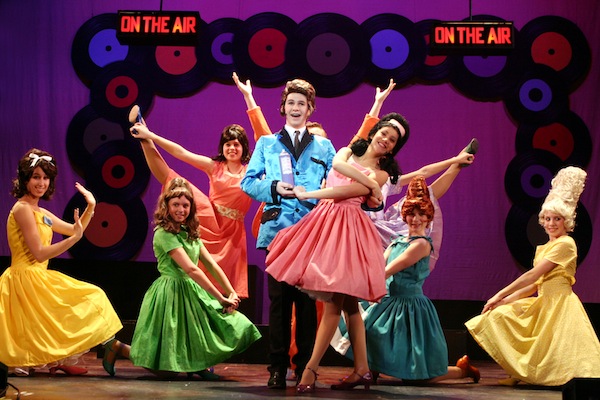 Welcome to the 60's! The Random Farms Kids' Theater will present Hairspray, Jr., a family-length adaptation of the classic, award-winning Broadway musical, at The Tarrytown Music Hall, July 25 through August 3, 2014.
Welcome to the 60's! The Random Farms Kids' Theater will present Hairspray, Jr., a family-length adaptation of the classic, award-winning Broadway musical, at The Tarrytown Music Hall, July 25 through August 3, 2014.
Set in the 1960's, this lively musical follows one girl's dream to be on TV's hottest dance competition. Her sudden celebrity status teaches her how to stand up for what she believes as she makes new friends, confronts her fears and gets involved in the civil rights movement. Winner of 8 TONY Awards, Hairspray is a memorable and energetic journey about rock'n'roll, dance, friendship and, of course, far-out hair-dos!
Hairspray is a rockin' fun musical for the whole family with a great message about tolerance.
Featured in the show are Scarsdale residents: Molly Bochner (IQ), Noah Chappell (Gilbert), Robert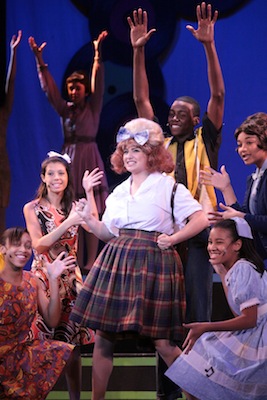 Chappell, Jr (Seaweed), Megan Gallagher (Prudy), Rose Hanish (Lou Ann) Julia Lipsztein (Girl/Daughter), Laura Paternoster (Shelly), and Simran Ruta (Ensemble/Mother).
Chappell, Jr (Seaweed), Megan Gallagher (Prudy), Rose Hanish (Lou Ann) Julia Lipsztein (Girl/Daughter), Laura Paternoster (Shelly), and Simran Ruta (Ensemble/Mother).
Performances are July 25 and August 1 @ 11:00am and 7:00pm; July 26 and 27 at 1:00pm; and August 2 and 3 at 1:00pm. The theater is located at 13 Main Street in Tarrytown. Directions can be found at www.tarrytownmusichall.org.
Tickets for Hairspray are $18 (adults), $16 (children under 12 and seniors), $14 (groups of 20+) and $10 (camps). Premium seating tickets (first four rows of center orchestra) are $23. To reserve tickets, go to www.tarrytownmusichall.org or call TicketForce at 877-840-0457. Tickets will also be available at the door. For more information, visit the theater's website at www.randomfarms.com.
Literary Agent Scott Waxman Shares Tools of the Trade
- Details
- Written by: Joanne Wallenstein
- Hits: 13206
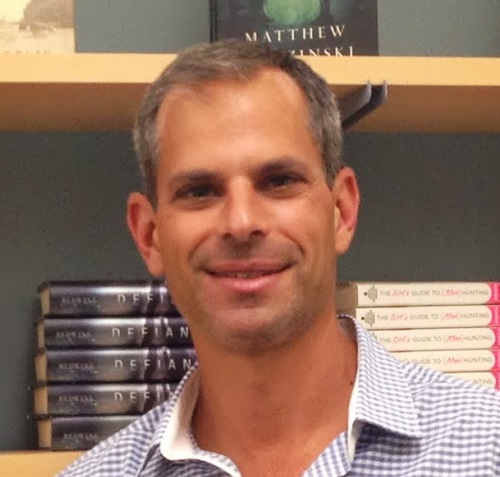 It's rare that you meet someone who clearly loves what he does at work. But the minute you start talking about the world of book publishing with literary agent and Scarsdale resident Scott Waxman you can sense his enthusiasm for the field and his job. Waxman is a co-founder of The Waxman Leavell Literary Agency with offices in New York and Los Angeles. They represent authors of fiction and non-fiction including journalists, celebrities and first-time writers. Waxman says, ""The great thing about being an agent is that it never gets boring. Each book allows you to enter a new world."
It's rare that you meet someone who clearly loves what he does at work. But the minute you start talking about the world of book publishing with literary agent and Scarsdale resident Scott Waxman you can sense his enthusiasm for the field and his job. Waxman is a co-founder of The Waxman Leavell Literary Agency with offices in New York and Los Angeles. They represent authors of fiction and non-fiction including journalists, celebrities and first-time writers. Waxman says, ""The great thing about being an agent is that it never gets boring. Each book allows you to enter a new world."
We asked Waxman to tell us about himself - how he came to launch his own agency and what he likes best about his job. He also offers some good advice to undiscovered writers who may be trying to get picked up by an agent.
Q. How did you break into the business? What is your background and how did you come to form your own agency?
A. I started my career in book publishing in 1990 at HarperCollins publishers. I was an apprentice to legendary editor Larry Ashmead who taught me a great deal about every aspect of the business, from evaluating the marketability of manuscripts to editing, to the importance of networking. It was a golden age of publishing, just prior to the explosion of the internet.
Q. Tell us about your agency – what is its market niche or area of specialization?
A. Our agency handles everything from chick lit to serious history. We have done humor books like Shit My Dad Says and Pulitzer winning books like Devil in the Grove. We also handle major sports memoirs from figures such as Brittney Griner and Victor Cruz.
Q. What do you like about what you do?
A. My favorite part of being an agent is the process of development with a non-fiction author. Many of the books I work on start with an idea which needs to be expanded and refined into something a person will want to read for 300 plus pages. What are the storylines of the book and how will they fit into a structure that keeps the pages moving? What are the most important/exciting aspects of the story? How do you build it to a climax? I work with authors at the very earliest stages of the proposal and from there we try to solicit interest from a publisher. When the proposal we worked so hard on hits the mark with publishers it is a very satisfying experience.
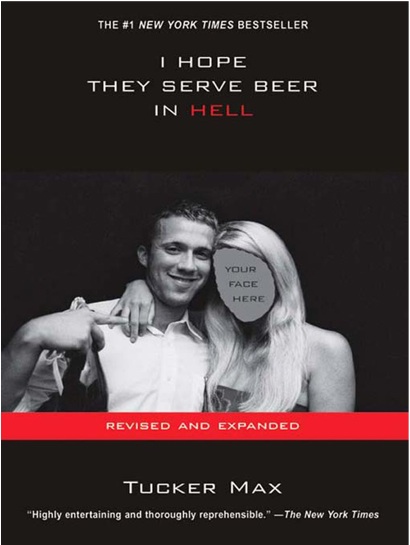 Q. What were some of the biggest books you worked on during your tenure at Waxman Leavell?
Q. What were some of the biggest books you worked on during your tenure at Waxman Leavell?
A. We have had dozens of New York Times bestsellers over the years. Some of the biggest were I Hope They Serve Beer in Hell, Beautiful Bastard, Game of Shadows and I Beat the Odds. All of our bestsellers are listed here:
Q. How do you spot new talent? For new submissions, what are the clues that a book has potential and will sell?
A. Most of my thinking on non-fiction is a combination of several factors: originality of the idea; the unique fit/ability of that author for that particular idea; the level of writing talent; and the author's ability to market. I need pretty much all of these to be working for me to feel confident I can sell the book to a major publisher. On the fiction side, it is all about the execution. Does the author have a fresh voice? Is it a book that will stand out from the crowd? Is it hard for me to put it down? These are the major questions.
Q. Any advice for new writers who are attempting to have their books published?
A. Spend a lot of time reading other books in the genre (thriller, romance, chick lit) 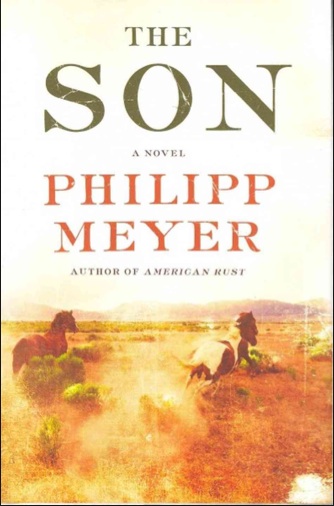 before writing your own. Make sure you are publishing into a category that is popular so you are not fighting against the tide. For instance, there isn't much of a market for Westerns these days so that's probably not a good genre to test! Join a writing group and workshop your book before sending to an agent. And finally, learn how to write a great query letter to entice an agent.
before writing your own. Make sure you are publishing into a category that is popular so you are not fighting against the tide. For instance, there isn't much of a market for Westerns these days so that's probably not a good genre to test! Join a writing group and workshop your book before sending to an agent. And finally, learn how to write a great query letter to entice an agent.
Q. How has the advent of e-books and "self-publishing" affected what you do?
A. Digital is half my time now. I created a separate company which focuses on e-book titles. It's called Diversion Books and we own over 500 titles in genres like romance, mystery, thriller, science fiction and non-fiction categories of Sports and Business. It's growing extremely fast.
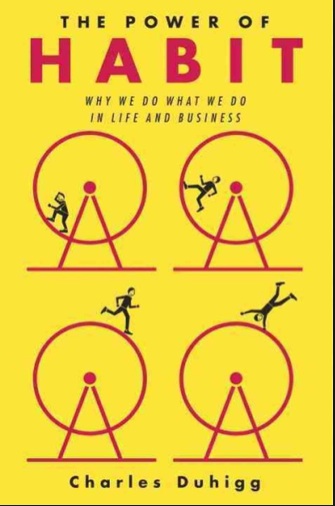 Q. What are you reading now? What would you recommend for summer reading?
Q. What are you reading now? What would you recommend for summer reading?
A. I am reading The Power of Habit by Charles Duhigg. For a great summer read I would recommend The Son by Phillip Meyer which is an unforgettable family saga set in the old West.
Q. As the father of kids in the Scarsdale schools do you feel that the district is fostering good writing skills?
A. I've been very pleased with the focus on writing. I have one child who just graduated the middle school, another who recently graduated Fox Meadow and another moving into second grade. I've seen all of their writing improve dramatically every year. Writing is a skill that requires practice and doesn't come easy to a lot of people (myself included!) But it is absolutely vital in everything we do, from writing a book to crafting a convincing query letter or email. I think our school system recognizes that and spends a great deal of time on it at every level. I have participated in the Young Writers Workshop in Scarsdale since we moved to town five years ago. It's a fantastic event and requires a ton of planning. I think it reflects just how much the community values writing.
Dr. McGill Says Goodbye with Concern and Affection
- Details
- Written by: Joanne Wallenstein
- Hits: 5933
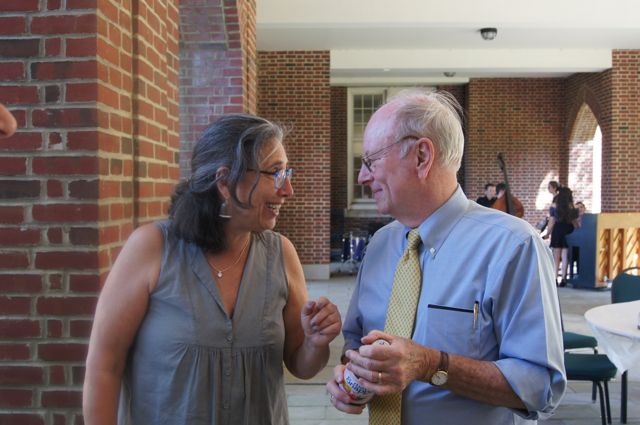 Here are retiring Superintendent Michael McGill's remarks at his last Board of Education Meeting on Monday June 23, 2014:
Here are retiring Superintendent Michael McGill's remarks at his last Board of Education Meeting on Monday June 23, 2014:
Dear Members of the Scarsdale Schools Community, Before I enter the ranks of the lately departed and begin to fade into history – I'm talking about career transition here, not dire metaphysical change – I want to share some observations about the State of the Schools. The impetus was the recent unearthing of remarks by my distinguished predecessor, Tom Sobol, at his last Board meeting 27 years ago. The relevance of his reflections is a sign of his wisdom, but it also tells us that the more things change, the more they're the same. Like him, I speak "in a spirit of concern and affection for a place and for people I have come to love."
"We are rightly proud of the way things are. But please remember that change is necessary and desirable."
Over the past decade and a half, we've sought to create a "Scarsdale Education for Tomorrow," a reinvigorated experience in liberal learning that aims to foster excellent thinkers and problem solvers, global perspective, and an ethic of service, "non sibi."
Scarsdale teachers have focused more intentionally on developing students' thinking 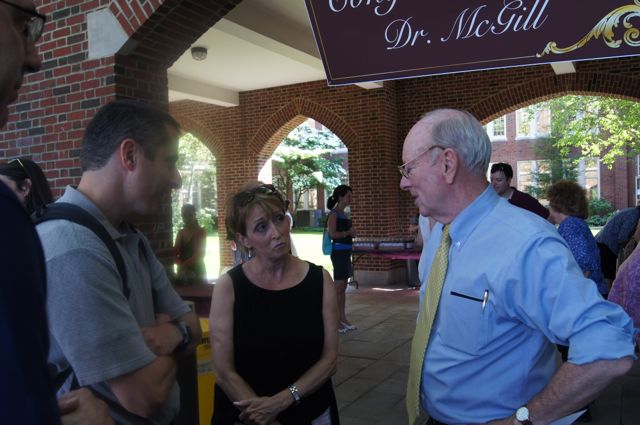 and self-expression. They've introduced inquiry research program and culminating inquiry projects in the elementary and middle schools. The High School has an Advanced Topics program. A Center for Innovation encourages broad-scale change in whole programs, schools and the District.
and self-expression. They've introduced inquiry research program and culminating inquiry projects in the elementary and middle schools. The High School has an Advanced Topics program. A Center for Innovation encourages broad-scale change in whole programs, schools and the District.
Growing numbers of students participate in "global-for-all" experiences abroad. More inclusive curriculums explore world cultures and include the study of cross-disciplinary issues like sustainability and water rights. Scarsdale students benefit from the study of Mandarin and elementary grade Spanish. Our Global Learning Alliance of schools and colleges seeks to identify practices that met a high international standard.
Non sibi activities include Circle of Friends, Human Rights Day, the Middle School Empathy Project and the High School's first year service expectation. The Schools have also committed to reduce their carbon footprint 10% below the 1990-91 level by the year 2020, in order to "meet the needs of the present without compromising the ability of future generations to meet their own needs."
Many of these efforts employ emerging technologies and all depend heavily on an enhanced program of continuing professional education.
In the early 2000's, Scarsdale undertook a decade-long, $90 million dollar, construction program, the largest single such effort in District history. There were major improvements at every building, including award-winning libraries; classrooms, science labs and athletic facilities. New plans are emerging to improve the elementary and middle schools, and to create a 21st century Learning Commons at the High School.
In 2001, meanwhile, parents boycotted state tests that threatened to narrow curriculum and promote a test prep mentality. The Schools subsequently concentrated on providing a "deep, rich program, letting the scores take care of themselves," as a far-sighted Board of Education said. A little over a decade later, the faculty, the Board and Parent Teacher Council reaffirmed this commitment by supporting what the faculty described as "A Declaration of Intellectual Independence."
Going forward, and consistent with the Board's injunction of 1933, Scarsdale must continue to remain abreast of new developments, even as it relies on methods that are proven. Any organism that is not growing, is dying.
"Excellence and uniformity are not synonymous. Indeed, they are often not compatible. To 'excel' means to stand out – the very definition implies the opposite of uniformity. The way to get excellence from a staff is to encourage people to think and imagine and dare, and then to support them."
Three decades on, policy makers in Washington and Albany continue to rely heavily on a strategy of metrics, accountability and competition to improve public education. The results of this approach have been unimpressive. It's made education more standardized, more routine, more average. Student performance on the National Assessment of Education Progress rose as much in the years before it became fashionable as in the years after.
Ironically, meanwhile, forward-looking corporations invest in human capital and do their best to foster trusting, collaborative work environments. Enlightened education policies would likewise sponsor the students and teachers who are at the center of the enterprise. As the University of Cambridge's Michael McIntyre has said, "measuring everything is both a mirage and a huge waste of resources...." Where complex organizations like schools are concerned, "There's actually no alternative to reliance on trust and to rebuilding trust where necessary -- for instance, trust in professional ideals and ethics.
Knowing the importance of flexibility and diversity, an advanced society facing the uncertain future will also find new ways of encouraging, among schoolchildren and their teachers for instance, other unmeasurables such as the curiosity, interest and enthusiasm, and the personal room for creativity, that are crucial to the development of high-level skills, versatility, and world-beating performance.... (It) will have rediscovered and acknowledged the fact that the most highly developed skills and learning come from the ignition of interest, not the imposition of auditing."
"Our schools have long depended in part for their quality on a high level of community volunteerism.... One of its most demanding forms is service on the Board of Education. Over the years, I have had consistent admiration and gratitude for the time and energy these dedicated Board members have expended on the community's behalf."
Especially following the economic downturn, calls to do more with less have intensified everywhere. Meanwhile, public expectations for performance and service grow. A new populism trumpets the virtues of transparency and demands more institutional responsiveness to public opinion. Boards of Education have to contend with and try to reconcile these and other tensions. It's hard work and there are few simple answers.
Our system of public education assumes that the people who govern schools, boards of education, represent the people. At the same time, school board members in New York State are called "trustees" because they've been entrusted with welfare of the institution. So in Scarsdale, historically, Boards of Education have understood that they weren't just reflecting public opinion but acting as stewards and champions of one of the nation's great institutions of learning.
On one hand, therefore, the trustees' job is to set broad direction for the schools that's consistent with core community values. Absent clear community consensus and where specific issues are concerned, it's to determine what in their informed judgment will best serve the long term interest of children and community, and to educate others to support their lead.
It can be hard to sort the issues and to know what's right. Community values may be unclear or in conflict. There may be disagreement about what will serve students best. Historically, Scarsdale Boards have faced these challenges by deliberating thoughtfully, and working collegially. They've done their best to act without fear, favor, or undue concern for their own popularity. That's what the large majority of community members expect.
Given today's ambient pressures, living up to this tradition and these expectations is and will continue to be a special challenge. Community understanding and support for the Board and this process have never been more important.
"I would urge the community to treat its teachers and other employees better. I am not talking about money. I am talking about respect and civility and common decency."
Public discourse in America has taken a nasty turn. Coincident with economic stress, resentment over taxes and sentiment that education should operate on hard-edged business lines, teachers and other public employees have come under attack. At times, the tone of comments seems almost to reflect a perverse sense that "if my life has gotten more difficult, yours should, too." Hard feelings can devolve quickly into verbal assaults on individuals. The tawdry dynamic says a lot more about the attackers than about the people they denigrate.
In Scarsdale, at least as I've experienced it, the vast majority of encounters between educators and residents is cordial and productive. Exchanges that might start out being difficult usually resolve into some kind of mutual, workable accord. However, we get into trouble when we depersonalize each other in the blogs, complain behind one another's backs or generalize about each other in the collective: when we talk about "incompetent teachers" or "crazy parents," for example. On occasion, bad feelings erupt in public statements.
This kind of divisiveness is simply unhelpful. While a certain amount of grousing is unavoidable in any human community, discourtesy and unpleasantness – as well as basic unfairness – just generate conflict, anger and more division. That makes it harder to reach the best outcomes for all.
The truth is that most teachers and, indeed, most public employees, are decent people who want to do a good job. Like everyone else, they deserve respect simply out of a sense of basic human decency. But from a purely self-interested point of view, treating others as if they're the hired help – or worse – isn't productive. It certainly doesn't give them an incentive to be more thoughtful, more giving or more effective. People flourish and they want to give back when they feel valued. We can have robust discussions and we can disagree without personalizing issues or going on the attack. Scarsdale is better than that.
"Finally, I would urge our schools and our community more often to look beyond their borders. We must remain aware of what is happening in the larger society and, in our case, particularly what is happening to schools and young people in our larger society."
A true democracy cannot endure when a people is sharply divided between rich and poor or when large numbers of people are the victims of social injustice. That road leads to bitterness and unrest, conflict and darkness; as a nation and as a community, we rise and fall together. Scarsdale is unusually fortunate in its human and financial resources, and to whom much is given, from them is much expected. It's both right and in our common interest to hasten the day when all children receive a quality education that equals the one Scarsdale children receive.
Also, Scarsdale has aspired to become not only a nationally-recognized institution, but one whose interests and reach are global. That may sound presumptuous or grandiose. Our human and material resources notwithstanding, after all, we're only a single school district in one small community. Nonetheless, our mission is to prepare graduates for lives of success and leadership in the global community, which means we must think globally. In addition, as Singapore's Minister of Education has said, others around the world look to Scarsdale for leadership. That's a significant responsibility. It calls the schools and the community to think big, to make their goal the sky, their aim the star. Without a great and generous vision, excellence can't exist.
I've been privileged to serve the children and the people of this extraordinary place. It's been a great ride. I take my leave, looking forward to a new venture in higher education, where I hope to play a positive part in the national discussion about school reform, as well as back at what we've all collectively achieved here over the last decade and a half. I honor those who've made Scarsdale, Scarsdale; I cherish the many friends I've made here and I look ahead to a future in which this great institution rises to even greater heights. If any community in the United States – or in the world, for that matter – can realize the ideal of an exemplary public education in the liberal arts tradition, it's this one.
With great good wishes, I am
Sincerely,
Michael V. McGill
